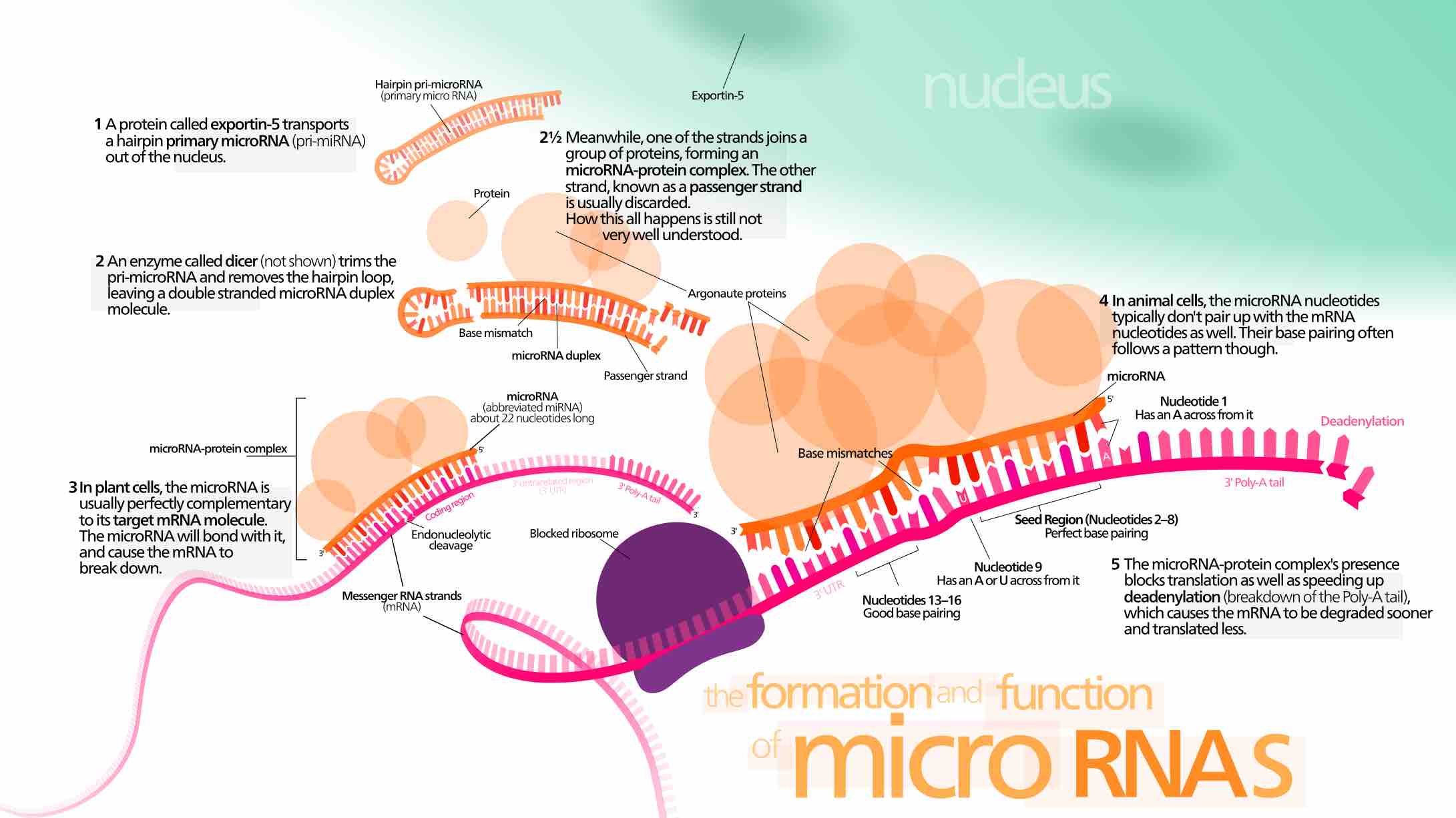Cancer and Post-transcriptional Control
Post-transcriptional regulation is the control of gene expression at the RNA level; therefore, between the transcription and the translation of the gene. After being produced, the stability and distribution of the different transcripts is regulated (post-transcriptional regulation) by means of RNA-binding proteins (RBP) that control the various steps and rates of the transcripts: events such as alternative splicing, nuclear degradation (exosome), processing, nuclear export (three alternative pathways), sequestration in DCP2-bodies for storage or degradation, and, ultimately, translation.
Changes in the post-transcriptional control of a gene can result in cancer. Recently, several groups of researchers have shown that specific cancers have altered expression of microRNAs (miRNAs) . miRNAs bind to the 3' UTR or 5' UTR of RNA molecules to degrade them. Overexpression of these miRNAs could be detrimental to normal cellular activity. An increase in many miRNAs could dramatically decrease the RNA population leading to a decrease in protein expression. Several studies have demonstrated a change in the miRNA population in specific cancer types. It appears that the subset of miRNAs expressed in breast cancer cells is quite different from the subset expressed in lung cancer cells or even from normal breast cells. This suggests that alterations in miRNA activity can contribute to the growth of breast cancer cells. These types of studies also suggest that if some miRNAs are specifically expressed only in cancer cells, they could be potential drug targets. It would, therefore, be conceivable that new drugs that turn off miRNA expression in cancer could be an effective method to treat cancer.

MicroRNA
Overexpression of miRNAs could be detrimental to normal cellular activity because miRNAs bind to the 3' UTR of RNA molecules to degrade them. Specific types of miRNAs are only found in cancer cells.